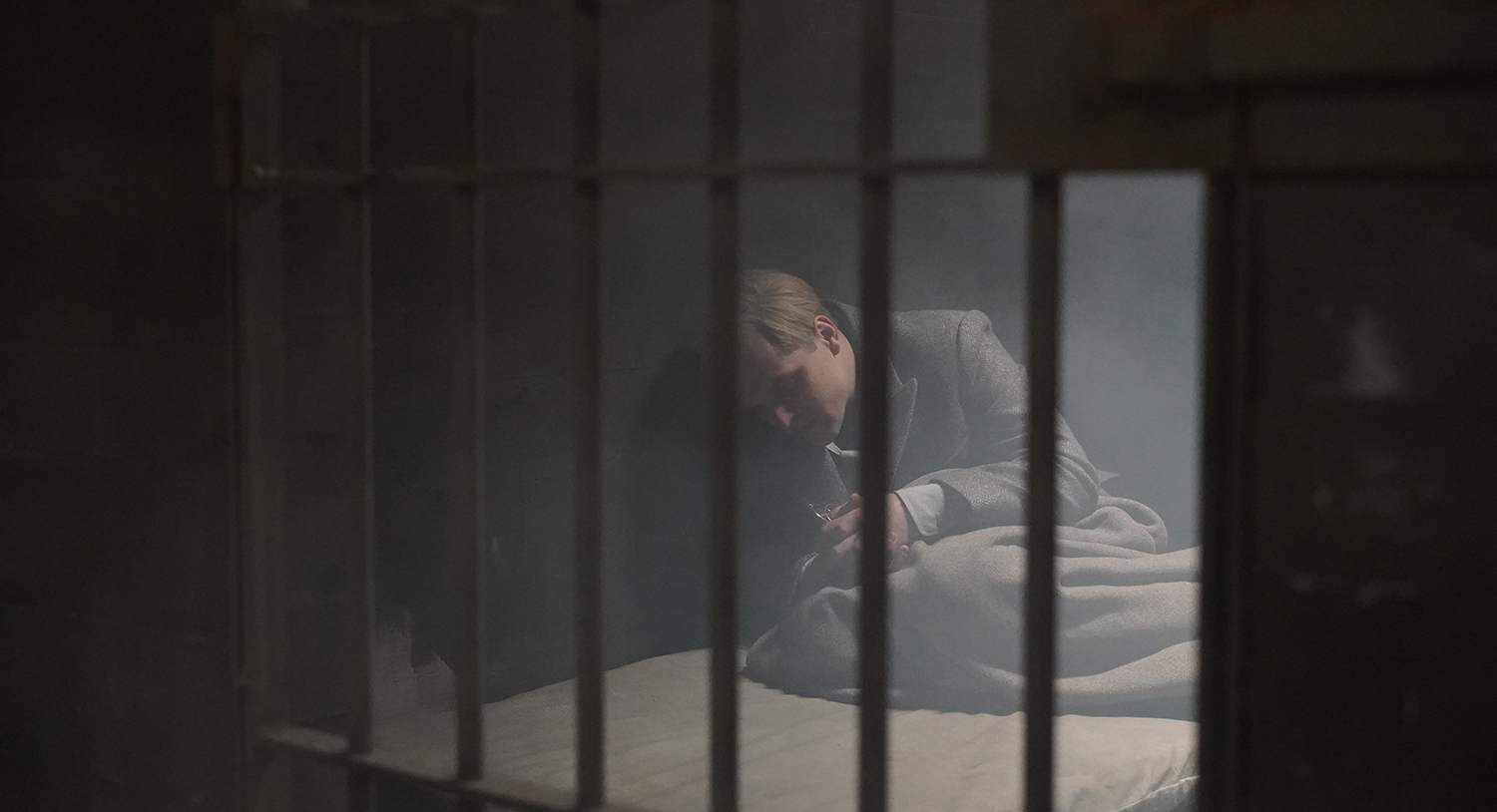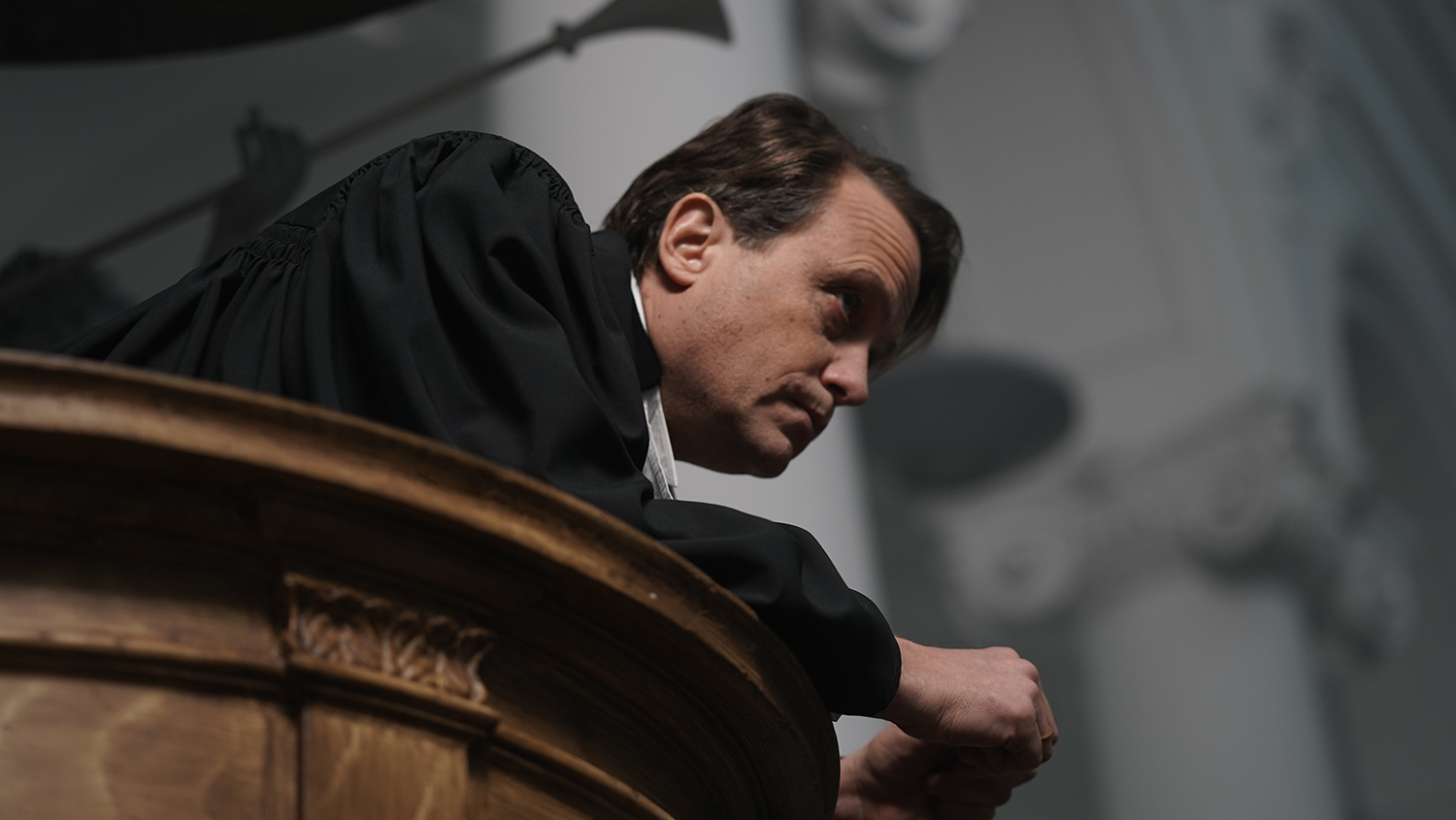The New Bonhoeffer film offers a mixed bag of emotions
Baptist News ^ | 11/30/2024 | Rodney Kennedy
Posted on 11/30/2024 6:01:35 PM PST by SeekAndFind
The task of offering an analysis of the movie Bonhoeffer: Pastor. Spy. Assassin has been complicated for me because the promotion for the movie shows Dietrich Bonhoeffer with a gun in his hand.
My attempts to recover from this misleading portrayal have no doubt prejudiced me. I need to confess this may make me less than a reliable witness, but I am determined to give as objective a view as possible. As a lifelong reader of Bonhoeffer’s The Cost of Discipleship, I am not easily pleased with cinematic depictions of his theology.
For my part, I would rather have Bonhoeffer depicted with a Bible in his hand. After all, when Bonhoeffer first discussed the possibility of participating in the attempt to assassinate Adolf Hitler, his friends pointed out Bonhoeffer didn’t know which was the business end of a gun.
“I would rather have Bonhoeffer depicted with a Bible in his hand.”
In a culture that often mixes guns and Bibles, this may not be an obstacle. But any guide to the life of Bonhoeffer must include the Bible as primary source, especially the Sermon on the Mount.
The larger a person’s Christian witness, the more powerfully a person attempts to live the life of Christ, the more people attempt to use his witness for their own purposes. I don’t think it possible to film, write or preach Bonhoeffer without “using” him.
Jesus Christ has been so used by almost everyone crossing his path. This is a complex undertaking to decide how best to allow Christ to use us. This seems especially true in America, where almost everyone still wants Jesus to be on their side.
Instead of the usual fare for a movie review in terms of character, plot, scene and script, I want to comment on the portrait of Bonhoeffer in this new film.
Bonhoeffer was not an American evangelical
The movie seems determined to make Bonhoeffer into an earnest evangelical. I don’t fault the attempt because everyone likes to have a saint on our side. In this case, the attempt at making Bonhoeffer an American evangelical is as far-fetched as David Barton trying to make Benjamin Franklin, Thomas Jefferson or Thomas Paine evangelicals in 1776.
Anabaptist theologian James McClendon has a much more palatable vision of Bonhoeffer as an example of what he calls “the baptist vision.” McClendon, in Ethics, observes: “Vision can be expressed as a hermeneutical principle: shared awareness of the present Christian community as the primitive community and the eschatological community. In a motto, the church now is the primitive church and the church on judgment day; the obedience and liberty of the followers of Jesus of Nazareth is our liberty, our obedience, ’til time’s end.”
Bonhoeffer, in his insistence of obedience to Jesus, is the personification of McClendon’s “baptist vision.”
The ideas Bonhoeffer sought to live out in company with other German Christians are central to the correct understanding of his entire life and its tragic end; they are not marginal, not “withdrawn.”
Obedience
And what were those ideas? There was, foremost, the idea of obedience.
This film doesn’t grapple at enough depth with the question, “What do you do if you are a Christian theologian and have come to believe your own country — the country you and your ancestors have loved and served — is slipping into the control of men who are about to commit massive evil?”
Understanding, as best we can, seeing through a glass darkly, how Bonhoeffer came to be involved in a conspiracy against Hitler requires an investigation into his life and theology.
There also are extraneous sources involved in my effort. The attempt to review the movie runs afoul of Christian nationalist Eric Metaxas, a darling of conservative evangelicals and an ardent Trump supporter. It also is at cross purposes with the “right-wing evangelical production company,” Angel Studios.
“This film is not a good presentation of the complexity of Bonhoeffer’s life.”
This film is not a good presentation of the complexity of Bonhoeffer’s life. I asked Baylor University scholar Barry Harvey about the movie. He messaged me: “I’ve seen it and participated in a livestream review of it. I haven’t written a review of it, but I’ll participate in some online reviews that hopefully will show up at some point. It’s not a good movie to understand Bonhoeffer.”
On the other hand, I didn’t find the movie an apology for Christian nationalism. It is, instead, a statement warning against Christian nationalism.
Some beautiful moments
There were moments in the movie that left me transfixed. Bonhoeffer’s experiences at the Abyssinian Baptist Church in Harlem are always powerful in print, in Bonhoeffer’s own testimony and especially in the movie. My own attraction to aspects of African American worship and its commitment, in some of its churches, to the Social Gospel, have deeply influenced my Christian development.
Aware of the danger of taking Bonhoeffer out of context and using isolated quotes to promote an agenda, I did experience a great resonance with the movie version of Bonhoeffer’s decision to join the conspiracy against Hitler: “The only way to defeat the father of lies is to lie better than he does.”
“I did experience a great resonance with the movie version of Bonhoeffer’s decision to join the conspiracy against Hitler.”
I found it impossible not to draw comparisons to Donald Trump as the movie told its story. Here my own depiction of Trump as “evil” crosses path with Bonhoeffer’s conclusion about the father of lies.
In my book Good and Evil in the Garden of Democracy, I argue Trump is a son of Satan merely based on the incredible way he has built his own power base on lies. John 8:44 is never far from my lips: “You are from your father the devil, and you choose to do your father’s desires. He was a murderer from the beginning and does not stand in the truth, because there is no truth in him. When he lies, he speaks according to his own nature, for he is a liar and the father of lies.”
There are several other statements filled with hard truth that feel like more than soundbites: Bonhoeffer argues of Hitler that “this man is without charm, without character, without charisma.” His friend responds: “But he has captured the nation.”
Another powerful line sees Bonhoeffer condemn church leaders, telling them the church should be a place of refuge, not a place of power. He accuses them of “choosing full pews over the truth.”
Sound familiar, American megachurches?
In the movie, there is a sermon by Bonhoeffer, attended by Nazi officers, where Bonhoeffer’s condemnation of Hitler and Nazism causes the soldiers to walk out on the preacher. Also, a number of Lutheran pastors and the bishop are counted among the “runners” from Bonhoeffer’s truth-speaking. His brother-in-law, shaking hands with Bonhoeffer after the sermon says, “Courage, Dietrich. Courage.” His sister adds: “We are so proud of you.”
Both the sermon and the heart-felt support of Bonhoeffer’s family brought me to tears.
Niemoller is powerful but the timing is wrong
Another sermon in the movie had the same emotional impact on me. The preacher is Martin Niemoller, and in real life the famous statement of Niemoller was made after the war, a point the movie doesn’t make clear.
Niemoller was a Lutheran pastor who spent 1938 to 1945 in concentration camps as the personal prisoner of Hitler. Before the war, Niemoller was persuaded Hitler would be a good leader or, at least, better than the Socialists. After the war, Niemoller was persuaded that his support for Hitler had been a mistake.
What persuaded him either time?
Niemoller was a little worried about whether Hitler would support the churches as much as Niemoller wanted — Hitler and the Nazis had exhibited a possibly purely instrumental support for Christianity. Niemoller thought he could outwit Hitler, get the conservative social agenda he wanted, disempower the socialists and all without harm coming to the church.
After the war, Niemoller was persuaded his support of Hitler had been a mistake. This is when he made his famous declaration:
First they came for the Socialists, and I did not speak out —
Because I was not a Socialist.
Then they came for the Trade Unionists, and I did not speak out —
Because I was not a Trade Unionist.
Then they came for the Jews, and I did not speak out —
Because I was not a Jew.
Then they came for me —
And there was no one left to speak for me.
More than a movie can show
Bonhoeffer’s time as a spy and assassin are historical footnotes compared to the entirety of his commitment to discipleship. The question of why a pacifist theologian became a participant in an assassination attempt can’t be answered. Bonhoeffer was so much more than any movie can show.
Bonhoeffer’s participation in the assassination attempt was more that of moral support of his ill-equipped and inept fellow conspirators. This suggests the real question should be about the church.
Mark Thiessen Nation poses such a question in “Discipleship in a World Full of Nazis: Dietrich Bonhoeffer’s Polyphonic Pacifism as Social Ethics”: “What would you do with a church which chooses to go along with a government that systematically eliminates Jews, Gypsies and homosexuals and mounts a war that would lead to the deaths of more than 35 million people?”
The Lutheran Churches in America remember in their calendar of saints’ days Dietrich Bonhoeffer, “theologian and martyr.” He was a martyr — that is, a witness — to the truth, and he died in solitary faithfulness to Jesus Christ.
A more appropriate title for this movie would be: Bonhoeffer: Theologian. Pastor. Christian. Disciple of Jesus.
Rodney W. Kennedy is a pastor and writer in New York state. He is the author of 11 books, including his latest, Dancing with Metaphors in the Pulpit.
TOPICS: History; Religion; Society; TV/Movies
KEYWORDS: bonhoeffer; film

Click here: to donate by Credit Card
Or here: to donate by PayPal
Or by mail to: Free Republic, LLC - PO Box 9771 - Fresno, CA 93794
Thank you very much and God bless you.
1 posted on 11/30/2024 6:01:35 PM PST by SeekAndFind
Disclaimer: Opinions posted on Free Republic are those of the individual posters and do not necessarily represent the opinion of Free Republic or its management. All materials posted herein are protected by copyright law and the exemption for fair use of copyrighted works.
FreeRepublic.com is powered by software copyright 2000-2008 John Robinson

 By Free Republic | Created at 2024-12-01 02:06:29 | Updated at 2024-12-01 05:00:54
2 hours ago
By Free Republic | Created at 2024-12-01 02:06:29 | Updated at 2024-12-01 05:00:54
2 hours ago










